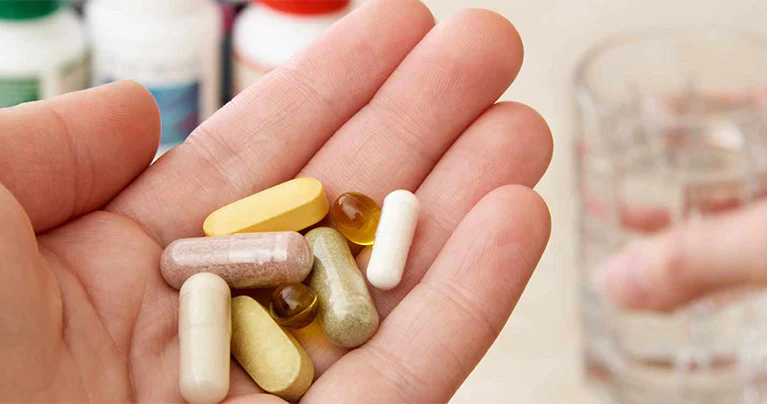It is always best to be aware of your unique health requirements and determine whether a dietary supplement could be able to meet those requirements before beginning to use supplements.
Do you require nutritional supplements? Your diet and lifestyle habits, as well as some external variables like your age, will all influence the answer. You can determine whether you need a dietary supplement by considering the following aspects:
You eat a bad diet: It may be challenging to receive all the vitamins and minerals your body requires if you consume fewer than five servings of fruits and vegetables each day. Additionally, if you only eat once or twice a day, you might be limiting the quantity and diversity of servings from the different food groups.
You Are a Vegetarian
Vegetarians often don’t receive enough calcium, iron, zinc, or the vitamins B-12 and D. These nutrients can be obtained naturally from non-meat sources such whole-grain products, legumes, green leafy vegetables, nuts, and fortified soy products. Protetox may be required if you are unable to routinely eat certain items.
You Don’t Exceed 1,200 Calories Per Day
Low-calorie diets restrict the kinds and quantities of food you consume, which in turn restricts the kinds and quantities of nutrients you get. A low-calorie diet is not advised unless prescribed and overseen by a physician.
You have a health issue that interferes with how your body takes in, processes, or secretes nutrients. You might benefit from taking a nutritional supplement if your diet lacks diversity due to food allergies or intolerances to particular foods, such as dairy products. Additionally, you might not be able to digest and absorb nutrients effectively if you suffer from a liver, gallbladder, intestinal, or pancreas condition, or if you have had surgery on your digestive system. Your doctor could advise you to use a nutritional supplement. Which will be most effective for your condition can be suggested by him or her.
You Are in the Postmenopausal Stage
Following menopause, estrogen levels in women suddenly plummet, which exacerbates bone loss. You need calcium and vitamin D, which is necessary for absorbing calcium, to maintain strong bones and reduce bone loss. Taking a calcium supplement with vitamin D may be beneficial for women who do not consume enough calcium and vitamin D through food.
As a woman, you experience significant monthly bleeding. In order to replenish the iron lost through blood loss, you might require more iron if you have excessive menstrual bleeding. Anemia, a disorder in which blood has inadequate levels of hemoglobin, the protein that delivers oxygen to tissues, can result from an iron deficit.
You Are Pregnant or Attempting to Get Pregnant
During this time, you need more calcium, folate, and iron than usual. To help shield your unborn child from neural tube birth abnormalities such as the imperfect closure of the spine, folate is required very early in pregnancy. Iron aids in the production of the red blood cells required to carry oxygen to you and your unborn child, preventing weariness. A dietary supplement may be advised by your doctor. It’s crucial to begin a supplement regimen before getting pregnant.
You Smoke Cigarettes
Numerous vitamins and minerals, such as vitamin C, folate, magnesium, and calcium, are less effectively absorbed when tobacco use is present. However, nutritional supplements cannot make up for smoking’s significant negative effects on health. The best course of action is to abstain from any tobacco use whenever possible.
You Consume Too Much Alcohol
The digestion and absorption of a number of vitamins and minerals, including vitamin B-1, iron, zinc, magnesium, and folate, can be hampered by long-term excessive alcohol consumption. Additionally, you can eat alcohol instead of meals, leaving your diet deficient in important nutrients. For men under the age of 65, more than two drinks per day are considered excessive, whereas for women and men over 65, more than one drink per day is considered excessive. However, taking dietary supplements won’t make up for the significant health dangers brought on by drinking too much alcohol.
You probably won’t need to take a nutritional supplement if you are typically healthy and eat a varied diet that includes fruits, vegetables, whole grains, and lean meats.
Conclusion
However, utilizing the typical vitamin and mineral supplement with 100% of the Daily Value for the various vitamins and minerals is usually fine if you want to ensure that you are getting all the vitamins and minerals you need and do not mind the additional cost and daily routine of taking a supplement. Before taking any supplements, you should always see your doctor because they are the ones who are most familiar with your medical history and current circumstances.

